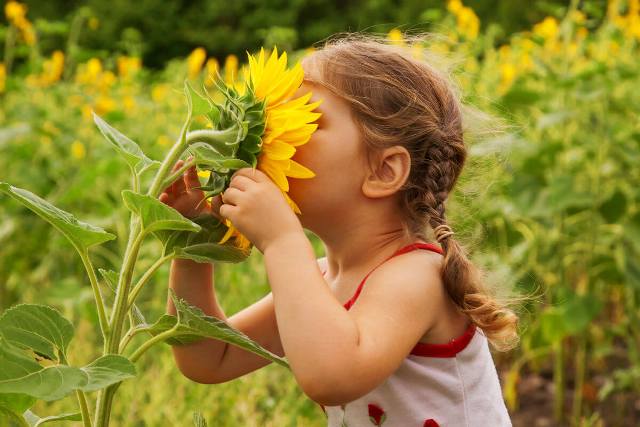“Nature holds the key to our aesthetic, intellectual, cognitive and even spiritual satisfaction.”
In today’s fast-paced and technology-driven world, children often face high levels of stress and anxiety. However, nature provides a serene and therapeutic escape that can significantly benefit their overall well-being. Spending time in natural environments not only offers a break from daily pressures but also promotes relaxation, mindfulness, and mental rejuvenation. In this blog, we will explore the numerous ways in which nature can serve as a stress relief for children and discuss the importance of incorporating nature into their lives.
- Connecting with the natural world: Nature offers children a direct connection with the environment, helping them develop a sense of wonder, curiosity, and appreciation for the world around them. From exploring forests, parks, or gardens to observing wildlife and engaging in outdoor activities, children can immerse themselves in the beauty and tranquility of nature, promoting a sense of calm and reducing stress.
- Physical activity and well-being: Engaging in physical activity outdoors, such as hiking, biking, or playing outdoor games, not only helps children release pent-up energy but also enhances their overall well-being. Physical exercise stimulates the release of endorphins, or “feel-good” hormones, which can alleviate stress, improve mood, and boost mental clarity.
- Sensory stimulation and relaxation: Nature provides a multi-sensory experience that engages children’s senses in a calming and stimulating way. The soothing sound of flowing water, the gentle touch of a breeze, the vibrant colors of flowers, and the fresh scent of the outdoors can have a profound impact on reducing stress levels and promoting relaxation.
- Mindfulness and presence: Nature encourages children to be present in the moment and engage in mindfulness practices. The natural world offers a respite from the constant distractions and demands of modern life, allowing children to focus on their immediate surroundings and cultivate a sense of mindfulness. Activities such as walking barefoot on grass, observing the intricate details of plants, or simply listening to the sounds of nature can help children develop a sense of peace and presence.
- Creativity and imagination: Nature acts as a canvas for children’s imagination and creativity. The openness and beauty of natural landscapes inspire children to engage in imaginative play, create art using natural materials, or invent stories about the natural world. This creative expression can serve as an outlet for stress and provide a sense of joy and fulfillment.
- Green spaces and mental health: Studies have shown that exposure to green spaces has a positive impact on mental health and well-being. Being surrounded by nature has been linked to reduced symptoms of anxiety, depression, and attention deficit hyperactivity disorder (ADHD) in children. Green spaces provide a sanctuary where children can escape from daily stressors and experience a sense of peace and restoration.
- Environmental education and awareness: Spending time in nature also fosters environmental education and awareness. Children learn about the importance of preserving and protecting natural resources, fostering a sense of responsibility towards the environment. This knowledge and connection to nature can instill a sense of purpose and meaning, contributing to their overall sense of well-being.
Conclusion: Nature serves as a powerful stress relief for children, offering a therapeutic escape from the demands and pressures of daily life. By connecting with the natural world, engaging in physical activity, experiencing sensory stimulation, practicing mindfulness, nurturing creativity, benefiting from green spaces, and fostering environmental awareness, children can find solace, rejuvenation, and mental well-being in the embrace of nature. Encouraging regular outdoor experiences and incorporating nature-based activities into children’s lives can contribute to their overall happiness, resilience, and ability to cope with stress, paving the way for a healthier and more balanced future.

